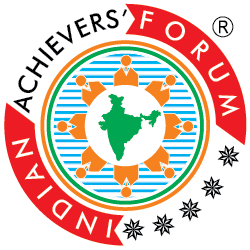“We have a responsibility towards all our stakeholders”
Albeit like a few, Rashtriya Chemicals and Fertilizers Ltd. is quite aggressive in its
approach towards social initiatives. Despite not that vast portfolio, RCF’s CSR initiatives’ approach and impact is quite effective. For the fiscal year 2014-15, RCF wants to focus on initiatives like health, environment and Swachh Bharat Abhiyaan. R.G. Rajan, CMD, Rashtriya Chemi- cals and Fertilizers Ltd. tells Bachan Singh about various involved aspects of CSR at RCF.
How would you define Corporate Social Responsibility?
Corporate Social Responsibility (CSR) may be construed as the vo-l untary activities
undertaken by a company to integrate social, en-vi ronmental and sustainable dev- el opment concerns in its business operations for a holistic balance of economic, environmental and so- cial imperatives. It is the continuing commitment by business to behave ethically and contribute to overall development of the local community and society at large.
As CSR now encompasses all relat- ed concepts such as triple bottom line, corporate citizenship,-philanthropy, strategic philanthropy, shared value, corporate susta-in ability and business responsibil- ity, which of these concepts fits the most in RCF’s portfolio and why?
RCF adopts a holistic approach -to wards implementation of the CSR activities for business development and growth of individuals, against the backdrop of maintaining social, environmental and economic devel- opment, upholding the concept of people, planet and profit.
Tell us about RCF’s CSR activities towards education and health hy- giene.
In the last financial year nearly 53% of our total CSR expenditure was fo- cused towards education and health hygiene activities. The running of school at Kurul (Thal) for the ch-il dren of mathadi workers & local people, providing scholarships, spe- cial coaching facilities to poor s-tu dents to enable them get admission in IITs and NITs, nurturing children aged 5 to 7 years in education sector and providing mid-day meal to u-n aided schools are some of our activi-ties aimed at improving education. RCF has undertaken the activity of providing free primary health care facilities including supply of medi- cines to villagers and poor people in and around Thal and Trombay areas through Mobile Medical vans. We have also launched a scheme called “Moksha” in collaboration with the “Wockhardt Foundation” wherein sanitary napkins are distributed free of cost to the underprivileged women.
A lot of organisations have been putting their CSR budgets into Swachh Bharat Abhiyan. Is RCF too following suit?
Some of the actions taken by RCF for implementation of Swachh Bharat Abhiyaan are setting up sew- age treatment plant at Trombay for treating 22.75 MLD sewage at a cost of about Rs. 200 crore in collabor-a tion with BPCL and contribution of Rs 1 crore to Swachh Bharat Kosh. In 2014-15, RCF has built green toilets in the factory premises for workers and truck drivers at a cost of Rs. 8 lakh while on the other hand, we are actively engaged in distribut- ing sanitary napkins free of cost in nearby slums of Trombay at a cost of Rs. 10 lakhs (80,000 packets will be distributed this year). We are also organizing quiz sessions on “Swachh Bharat Abhiyan” to sensitise RCF employees about the campaign.
What is your CSR budget for the fiscal year 2014-15 and how much out of that has been spent? Have you planned to take up some fresh projects?
In Fy 2013-14, RCF has spent Rs. 14.61 crore towards various CSR ac- tivities in Trombay and Thal areas, which is certainly above the stip-u lated amount of 2% as per statute. Promoting solar units, tree planta- tion, health related activities and Swachh Bharat Abhiyan related a-c tivities are the focus areas for Fy 2014-15.
Talking about inclusive growth, what difference do you see in India since the time CSR has become a mandate?
With 30% of its population -esti mated to be living below the poverty line, inclusive growth is an urgent priority in India. To meet its goal of inclusive growth, the Indian govern- ment has initiated various social-sector schemes in education,public health, food security, and livelihood support in order to reach out to the poorest of the poor and
facilitate their socio-economic development. There is also a growing consensus that companies should contribute to the welfare of the society in which they operate and from where they draw their resources to generate profits. The call of the time for over- all growth of the industry as well as the underprivileged individuals of the society is a business necessity. Now that the Indian government has mandated CSR for the companies, including the private sector, under the new Companies Act, 2013, the impact will become more significant with increasing corporate participa- tion and reaching out to a wider sec- tion of the society.
Could you kindly share some fig- ures and numbers about how many lives has RCF been able to change through its CSR initiatives?
RCF undertakes various CSR pr-oj ects in Trombay & Thal areas for the beneficiaries, in the fields of educa- tion, medical, scholarship to SC/ ST students, environmental preser- vation, village adoption and many more. Nearly two lakh persons are benefitted under the umbrella of health and family welfare schemes. In education sector nearly 50,000 children stand benefitted. And the list goes on quite long while review- ing head wise each activity.
Why did you think to sponsor S-u per 30 programme? What are your views on the programme?
With the large youth population in the world, India beholds immense upcoming talent. The heart of India exists in villages and the untapped talent in rural Maharashtra needs immediate attention. The rural sec- tor results are slow due to lack of in- frastructural facilities. With the aim of encouraging bright students of underprivileged categories towards shaping the national interests, this project of Super 30 is taken up by RCF. Under this unique programme,the company, in association with Centre for Social Responsibility and Leadership (CSRL), has established a unit of Abhayanand Super 30 in Mumbai where about 30 under- privileged but talented students of Maharashtra state are provided free residential coaching of 11 months to enable them get admission
in IIT/ NIT and other premier engineering colleges. In the last batch of Super 30 project, the results were impres- sive with success of 8 students in IIT, 7 in NIT, 3 in IISER and 12 in state level. Similar projects are also ex- ecuted in other
parts of the country in collaboration with other PSUs.
In a report, you have mentioned that RCF’s endeavour is to- mi nimise carbon footprints. How far have you been successful in that endeavour?
We believe in our responsibility towards all the stakeholders and our policies are guided by our com- mitment in adopting environment friendly initiatives. As a primary step for undertaking structured ap- proach to managing company’s car- bon risks, Greenhouse Gas (GHG) Accounting study/Carbon F-oot printing was conducted for both of our units at Trombay and Thal in the year 2010-11 and we have been closely monitoring it since then. Our Total GHG Emissions are 32.39 lakh tCO2 for the year 2013-14 vis-à-vis 35.11 lakh tCO2 in 2012- 13 for almost similar production levels. That is about 7.7% red-uc tion over the previous year. This is mainly attributable to energy- ef ficiency schemes implemented at both the units. We are targeting fur – ther reduction in carbon footprint over the years.As an initiative towards greener energy, we have already installed roof top solar power generation facilities of 10 KWp each – two at Trombay and one at Thal Unit; and two similar facilities of 2 KWp each at two marketing offices. We are also in the process of setting up 2 MWp grid interactive solar power genera- tion unit at our Trombay Unit.








